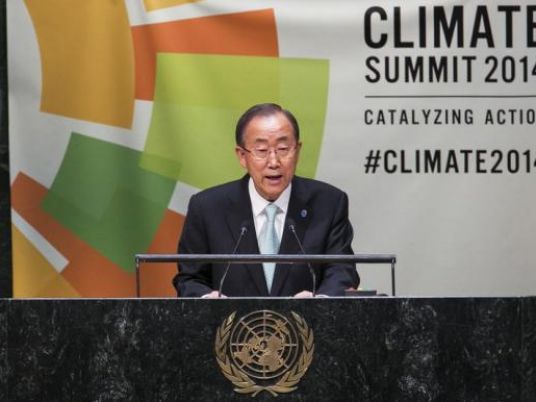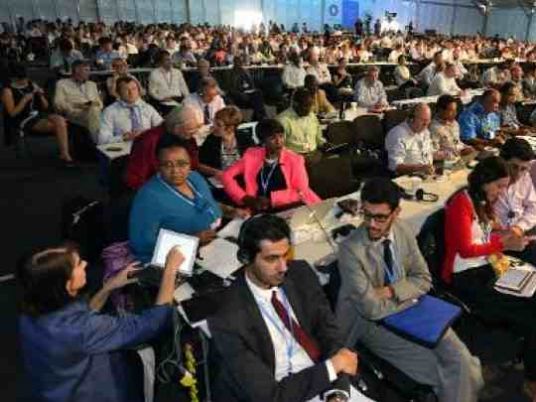
Uncertainties about long-term curbs on greenhouse gas emissions meant to be agreed at a UN summit in 2015 will not deter many big businesses from green investment because they say it already makes economic sense.
Customer demand for less-polluting products, shifts to cleaner and more efficient energy and curbs on carbon from China to California are all creating business opportunities, they told the Reuters Global Climate Change Summit.
IKEA Group, the world's biggest furniture retailer which had 775 million visits to its stores around the world last year, said it is pre-empting any UN accord, viewing environmental sustainability is a core part of its business.
"At IKEA we really support ambitious and binding targets for renewable energy, for emissions, as well as for energy efficiency," chief executive Peter Agnefjall said. IKEA is, for instance, likely to invest about US$3 billion in wind and solar power by 2020 to drive its own operations.
And in the past, Agnefjall said IKEA's green products often had a "funny design or colour" or had been more expensive. Now "sustainability…should be the way you do business".
Almost 200 governments plan to work out a deal in Paris in December 2015 to slow man-made climate change that a UN panel of climate scientists says is the main cause of more heatwaves, floods, droughts and rising seas since 1950.
The UN accord would enter into force after 2020.
Many businesses at the Reuters summit – gathering many that have taken a lead in combating climate change – say they are not waiting for national laws or the UN process, which is bogged down by disputes between developed and developing nations about how to share out curbs on rising greenhouse gas emissions.
"We don't have time to wait for the government to implement any kind of solution," said Josh Henretig, Director of Environmental Sustainability at Microsoft which has set a goal of no net carbon emissions.
"If we can be an example to organizations and public institutions around how a carbon price could create a more sustainable growth model for our company, then that's ideal for us," he said.
No treaty
A UN deal in Paris is likely to fall far short of a strong treaty and looks likely to be a patchwork of national plans for fighting climate change, based on domestic laws.
China and the United States, the top greenhouse gas emitters, oppose a treaty. Still, the director of the White House Office of Management and Budget, Shaun Donovan, said a Paris deal was a top priority for President Barack Obama.
"The more we do, the more our ability to push other countries to make bold commitments as well, particularly China," he said. He said half the Fortune 500 companies have made commitments to renewable energy.
Many companies say it is hard to rate the exact impact of climate action on their earnings.
A report this week from the Carbon Disclosure Project said shares in an index of 187 companies rated as leaders on climate action, including Apple, BMW and Coca Cola, had gained 37.5 percent since 2010. That, they said, outperformed a 34.2 percent rise in the Bloomberg World Index.
"It debunks the myth that climate action is purely a cost," said Paul Simpson, head of the non-profit group which compiled the report as an attempt to track business performance.
For some, uncertainty about a Paris accord makes it hard for businesses to plan.
"We are not generally in support of extra regulation, as you would expect, but we support things like mandatory carbon reporting," said Michael Alexander, head of environment at Diageo, the world's biggest spirits firm with brands such as Johnnie Walker whisky.
Companies, though, said a key concern was that restrictions on emissions should be applied worldwide.
"We support a global cost on carbon dioxide… as long as we have a level playing field," said Svein Richard Brandtzaeg, CEO of Norwegian aluminium maker Norsk Hydro.


